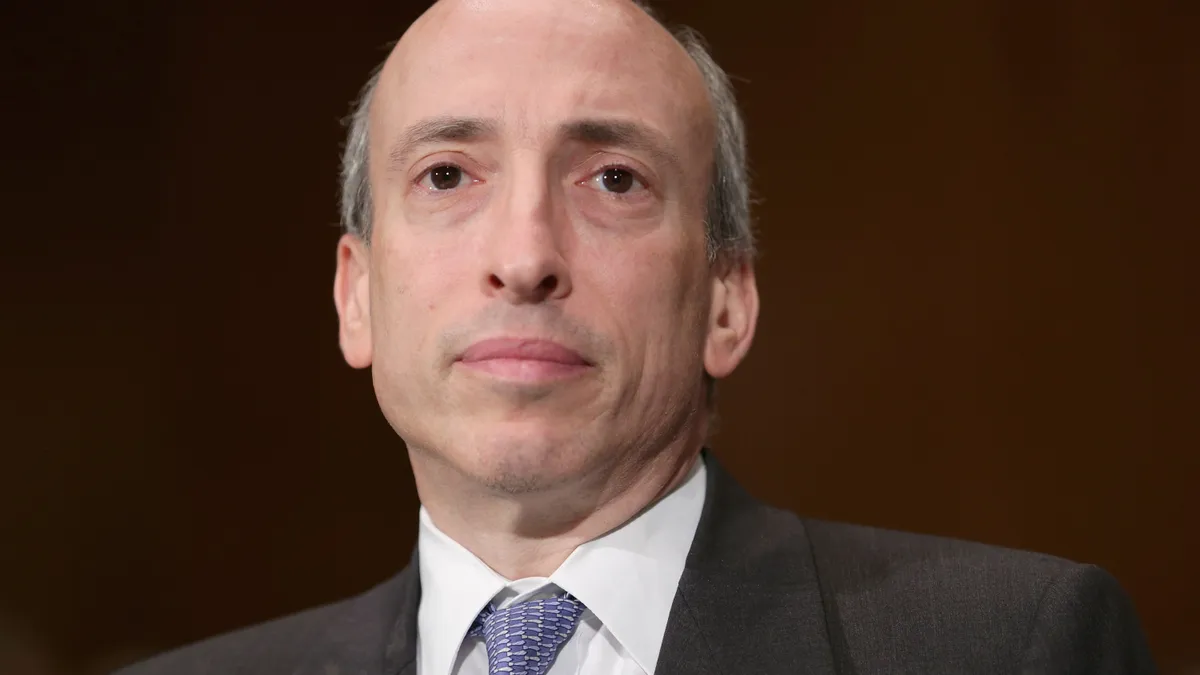Dive Brief:
- A federal appeals court granted a motion for administrative stay of the Securities and Exchange Commission’s recently finalized climate risk disclosure rule on Friday. The ruling was in response to a petition filed by Colorado-based Liberty Energy, the U.S. Chamber of Commerce and the states of Mississippi, Louisiana and Texas.
- The motion to stay was filed March 8 in the U.S. Fifth Circuit of Appeals, arguing the rule violates the “major questions” doctrine, violates the First Amendment and “is arbitrary and capricious” and “not supported by substantial evidence.” While the SEC argued in its March 13 response that a stay was premature and the petitioners hadn’t shown a stay is warranted, the court’s three-judge panel paused the rule’s implementation March 15.
- Liberty Energy’s case — which was combined with a petition in the same court from the Texas Alliance of Energy Producers and Domestic Energy Producers Alliance — is one of at least four challenges to the rule throughout the country, but the first to receive court action.
Dive Insight:
Liberty Energy, an onshore oil and natural gas services provider, co-filed its suit with Nomad Proppant Services, a company that produces sand for hydraulic fracturing. Louisiana, Texas and Florida joined the suit next, before the pair of Big Oil trade groups added their names to Liberty Energy’s suit. The Chamber of Commerce added its name, along with the Texas Association of Business and the Longview Chamber of Commerce, a day before the motion was granted.
The order was decided by Fifth Circuit Judges Edith Jones, Patrick Higginbotham and Cory Wilson. In granting the administrative stay, the judges did not weigh in on either sides' arguments.
However, a challenge must meet four legal thresholds for granting a stay pending review, as a petitioner must show: They are likely to succeed on the merits; the applicant will face irreparable injury without a stay; if the issuance of the stay will “substantially injure” other interested parties; and “where the public interest lies.”
Liberty Energy and its co-filers argued the SEC — which excluded requirements for scope 3 disclosures and slimmed parameters for scope 1 and scope 2 emissions reporting in its final rule — has “no clear authority” to provide climate disclosures.
“The rule is unique in the history of the SEC,” Liberty Energy said. “Never before has it claimed the power to demand such broad ‘climate’-related disclosures, which will occupy a significant portion of public companies’ SEC filings and subject them to increased enforcement and litigation.”
The SEC said in its response that emergency relief would not be appropriate, because Liberty Energy’s “asserted harms are not immediate.” The agency said the rule has not yet been published in the Federal Register, which would officially start a 60-day countdown to the rule’s implementation, and have extended compliance dates, as the first disclosures would not be required until fiscal year 2026.
The SEC filed another response to Liberty Energy less than a half hour after the court granted the stay order. The March 15 filing from the agency reiterated its belief that the claims for immediate relief are improper because there is no urgency for the company to report. The SEC also noted that Liberty Energy is the only public company seeking relief in the case, and it already disclosed climate-related risks in its most recent annual report. The agency also said its most recent report makes no mention of Nomad, despite Liberty Energy claiming both companies suffer compliance costs from the rule in tracking its scope 1 and scope 2 emissions.
The SEC is also facing challenges to the rule from environmental group Sierra Club, 10 Republican-led states and the Ohio Bureau of Workers’ Compensation. The Sierra Club is the only of the four to seek to uphold the rule, while challenging its pared down emissions reporting requirements.
The Ohio Bureau of Workers’ Compensation was joined in its suit by Kentucky and Tennessee and their respective attorneys general. At a House Financial Services Committee field hearing in Lebanon, Tennessee on Monday, Whitney Hermandorfer, director of the strategic litigation unit in the state’s attorney general office, said the final rule was decorated with “materiality ribbons, quoting SEC Commissioner Hester Peirce’s dissent. Hermandorfer said Tennessee and other states “mobilized swiftly to fight this rule.”
An SEC spokesperson previously told ESG Dive the agency believes its rulemaking process abided by the Administrative Procedure Act and was consistent with its authorities. The spokesperson said the agency “will vigorously defend the final climate risk disclosure rules in court.”













